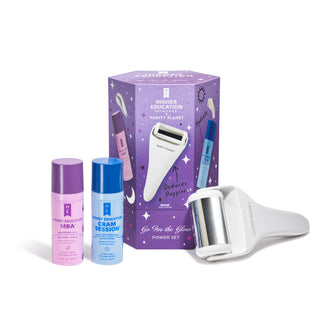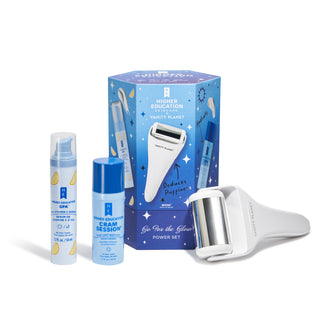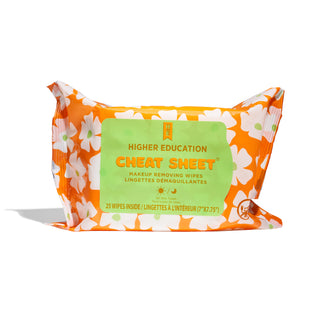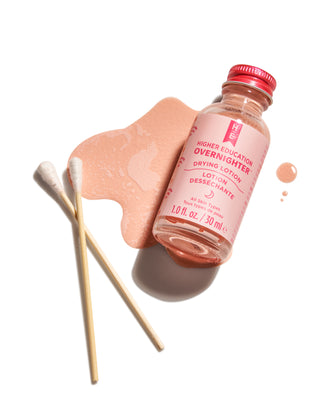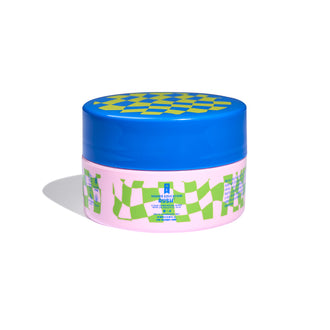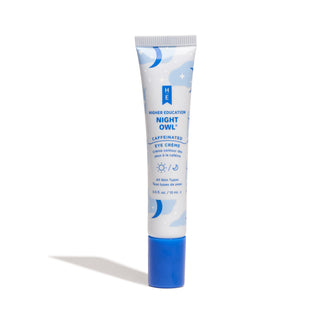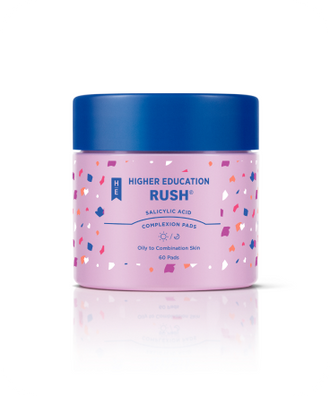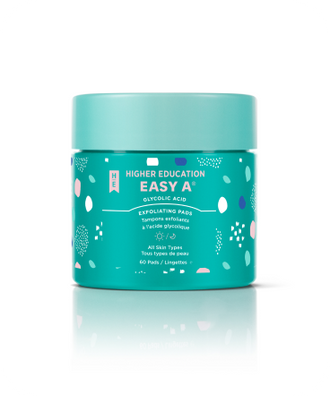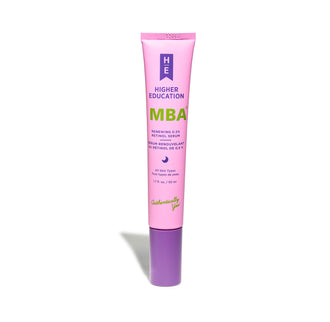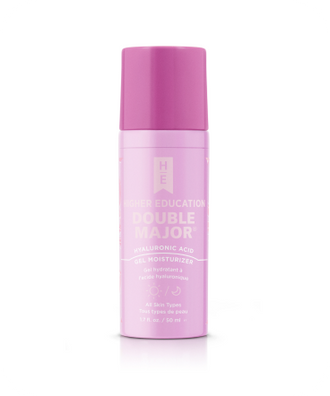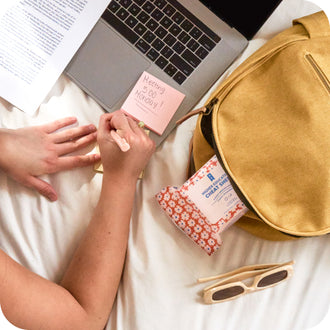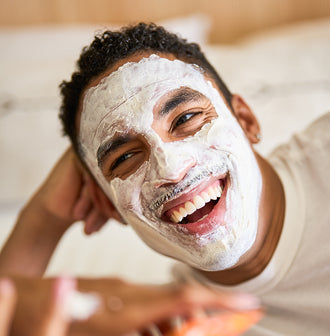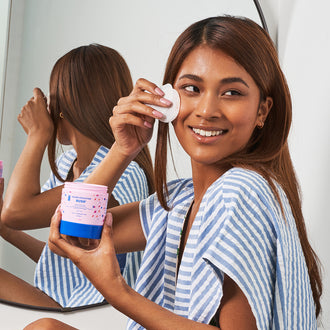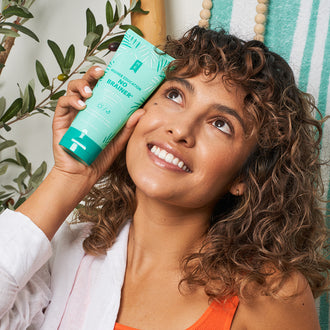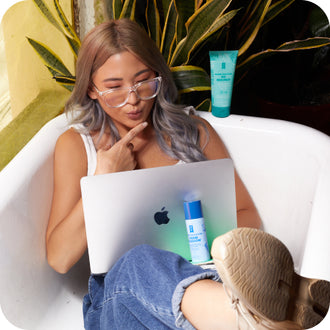
WEATHER ADVISORY: The giant cold front sweeping across the country has forced lovers to huddle together for warmth!
It’s officially “Cuffing Season” i.e. that time of year when people pair up to wait out the winter months by binge watching episodes of YOU or The Mind of Aaron Hernandez on Netflix.
It is also shockingly close to the world’s most notorious “Hallmark Holiday”: Valentine’s day.
Relationships are wonderful, of course, but they can be a bit intimidating. To set a solid foundation, you express vulnerability by sharing your hopes and fears with what feels, at first, like a compelling stranger. BUT, with the right partner, relationships are worth it.
HOW DOES BEING IN A RELATIONSHIP AFFECT YOUR SKIN?
Since you’ve been canoodling with your S.O., your cheeks are probably flushed, and you feel cute and flirty in a messy bun and oversized t-shirt. Your stress breakouts have cleared and you have a “love glow” that is common among the newly coupled.
When we receive positive, physical attention from an individual to whom we are attracted, our bodies release the hormone Oxytocin. Oxytocin is a hormone associated with bonding, social behavior, and attachment in mammals; it has been found to increase bonding-related behavior, trust, and empathy (Schneiderman).
Research also shows that an increase in stress has a direct correlation to skin inflammation and acne vulgaris (Chen). The release of oxytocin is known to reduce stress, which can, in turn, reduce inflammation and calm your skin (Heinrichs). Less stress and a new boo who thinks you’re incredible can put a pep in your step and calm your skin.
Twinkle in your eye aside, you may actually experience negative skin side effects from Cuffing Season. New relationships are volatile by nature; they can turn your whole life upside down, changing your life for the better (and sadly, sometimes for the worst).
Changes in your exposome (sum of all environmental factors like daily routine, stress and nutrition) can have detrimental effects on your skin.
TIPS TO KEEP YOUR SKIN HEALTHY WHILE FALLING IN LOVE
The key to managing breakouts and acne flareups is to learn how to manage the impact and effect your environment has on your life (Dreno).
Here are a few tips I curated to ensure your skin stays vibrant and glowing both in and out of love…
Take Your Makeup off Every Night!
Do not fall asleep with your make up on.
… Even if you and your mate have been snuggling on the couch, the clock reads 3:00 AM and you’re bone tired… Wash your face!
…Even if you have an overnight guest, a slumber party, or a rager… take off your makeup!
You are gorgeous barefaced. THIS IS NOT 1958. If Midge Maisel is badass enough to let Joel see her without makeup, we can bravely embrace our natural skin, too.
You can use makeup remover wipes if you are convinced that a good ‘ol rinse and wash is just too much. CHEAT SHEET® Makeup Removing Wipes are clutch to keep in your bedside drawer in case of emergencies.
If you are out-and-about, sneak into your SO’s kitchen, grab some coconut oil or olive oil and DIY a makeup remover. This isn’t an ideal method for those of us with oily or acne-prone skin, but it is far better than sleeping with a pile of makeup on your skin. Your skin will thank you!
Pack a To-Go Bag
Save yourself from the embarrassment of wearing an oversized uni sweatshirt as a dress to class; while our girl Ari makes it look effortlessly chic, we may look a bit shameful.
Throw together a bag of clothes, an extra toothbrush, dry shampoo, and a couple of essential skincare products in your car. I promise it will come in handy when “date night” turns into “overnight.”
My skincare picks for the travel bag: NO BRAINER® Gentle Facial Cleanser, HIGHER EDUCATION EASY A® Glycolic Acid Exfoliating Pads, and CRAM SESSION® Blue Light Blocking Moisturizer.
Get Rid of “Mustache Rash”
Are you breaking out around your mouth and chin? Have you been getting cozy with a stubbly or bearded man? You, my dear, have “mustache rash!”
The skin around your mouth and chin is inflamed; do not pick at the spots. Try adding an active ingredient like Salicylic Acid to your skincare routine. RUSH® Salicylic Acid Complexion Pads are a great, targeted solution for mustache rash. Just be sure to moisturize with DOUBLE MAJOR® Hyaluronic Acid Gel Moisturizer, which is gentle enough to moisturize without clogging your pores.
Get Some Sleep!
Playing Pong until 3:00 AM is well and good, but girl… You need some sleep!
Lack of sleep is directly correlated to an increase in inflammation and can lead to all kinds of health risks, throwing your whole body into a funk, including your skin (Mullington).
Do whatever you can to decrease inflammation in your body including getting that full, 7-8 hours of sleep.
Take a Break
Not A “WE WERE ON A BREAK” break (cue Ross Geller Screaming), just take a night to yourself every once in a while.
Plan a weekly GNO with your roommates or by yourself for some necessary self-care. You can make your favorite dinner, paint your nails, and give yourselves a full 7-step at-home facial while catching up on your favorite Netflix show.
Give That Bad Relationship the Boot
Self-honesty when it comes to people we care about is hard.
Staying in a bad relationship can take a toll on your long-term physical health as well as your mental wellbeing; it causes you to engage in coping strategies that are unhealthy and increases stress (Umberson).
Sometimes it feels easier to wait it out and hope that things get better, but things rarely ever sort themselves out without hard work from both parties.
If you think that you may be in an unhealthy relationship, please talk about it with someone you trust: an unbiased friend, a close aunt, a therapist… whomever you trust. There are people who care about your happiness and will help you sort out your thoughts.
Break ups can be tough but staying with the wrong person when it’s just not right makes life very complicated. Once the stress from a toxic relationship has subsided, you might find that you have more energy, a healthier mindset, and clearer skin!
Wherever you are in your relationship status, whether it’s the “can’t go a day without you” beginning, the Instagram bio official middle-of-the-road, or single and stoked, remember that routine and mental health effect your skin. Do what you can to keep yourself sane while enjoying your newfound love and don’t forget that the most important relationship you will ever have is with yourself.
BIBLIOGRAPHY
Bagatin, E., Freitas, T., Rivitti-Machado, M. C., Machado, M., Ribeiro, B. M., Nunes, S., & Rocha, M. (2019). Adult female acne: a guide to clinical practice. Anais brasileiros de dermatologia, 94(1), 62–75. doi:10.1590/abd1806-4841.20198203
Chen, Y., & Lyga, J. (2014). Brain-skin connection: stress, inflammation and skin aging. Inflammation & allergy drug targets, 13(3), 177–190. doi:10.2174/1871528113666140522104422
Dréno, B., Bettoli, V., Araviiskaia, E., Sanchez Viera, M., & Bouloc, A. (2018). The influence of exposome on acne. Journal of the European Academy of Dermatology and Venereology : JEADV, 32(5), 812–819. doi:10.1111/jdv.14820
Fox, L., Csongradi, C., Aucamp, M., du Plessis, J., & Gerber, M. (2016). Treatment Modalities for Acne. Molecules (Basel, Switzerland), 21(8), 1063. doi:10.3390/molecules21081063
Heinrichs, M., Baumgartner, T., Kirschbaum, C., & Ehlert, U. (2003). Social support and oxytocin interact to suppress cortisol and subjective responses to psychosocial stress. Biological Psychiatry, 54(12), 1389–1398. doi: 10.1016/s0006-3223(03)00465-7
Mullington, J. M., Simpson, N. S., Meier-Ewert, H. K., & Haack, M. (2010). Sleep loss and inflammation. Best practice & research. Clinical endocrinology & metabolism, 24(5), 775–784. doi:10.1016/j.beem.2010.08.014
Oon, H. H., Wong, S. N., Aw, D., Cheong, W. K., Goh, C. L., & Tan, H. H. (2019). Acne Management Guidelines by the Dermatological Society of Singapore. The Journal of clinical and aesthetic dermatology, 12(7), 34–50.
Schneiderman, I., Zagoory-Sharon, O., Leckman, J. F., & Feldman, R. (2012). Oxytocin during the initial stages of romantic attachment: relations to couples' interactive reciprocity. Psychoneuroendocrinology, 37(8), 1277–1285. doi:10.1016/j.psyneuen.2011.12.021
Umberson, D., & Montez, J. K. (2010). Social relationships and health: a flashpoint for health policy. Journal of health and social behavior, 51 Suppl(Suppl), S54–S66. doi:10.1177/0022146510383501


